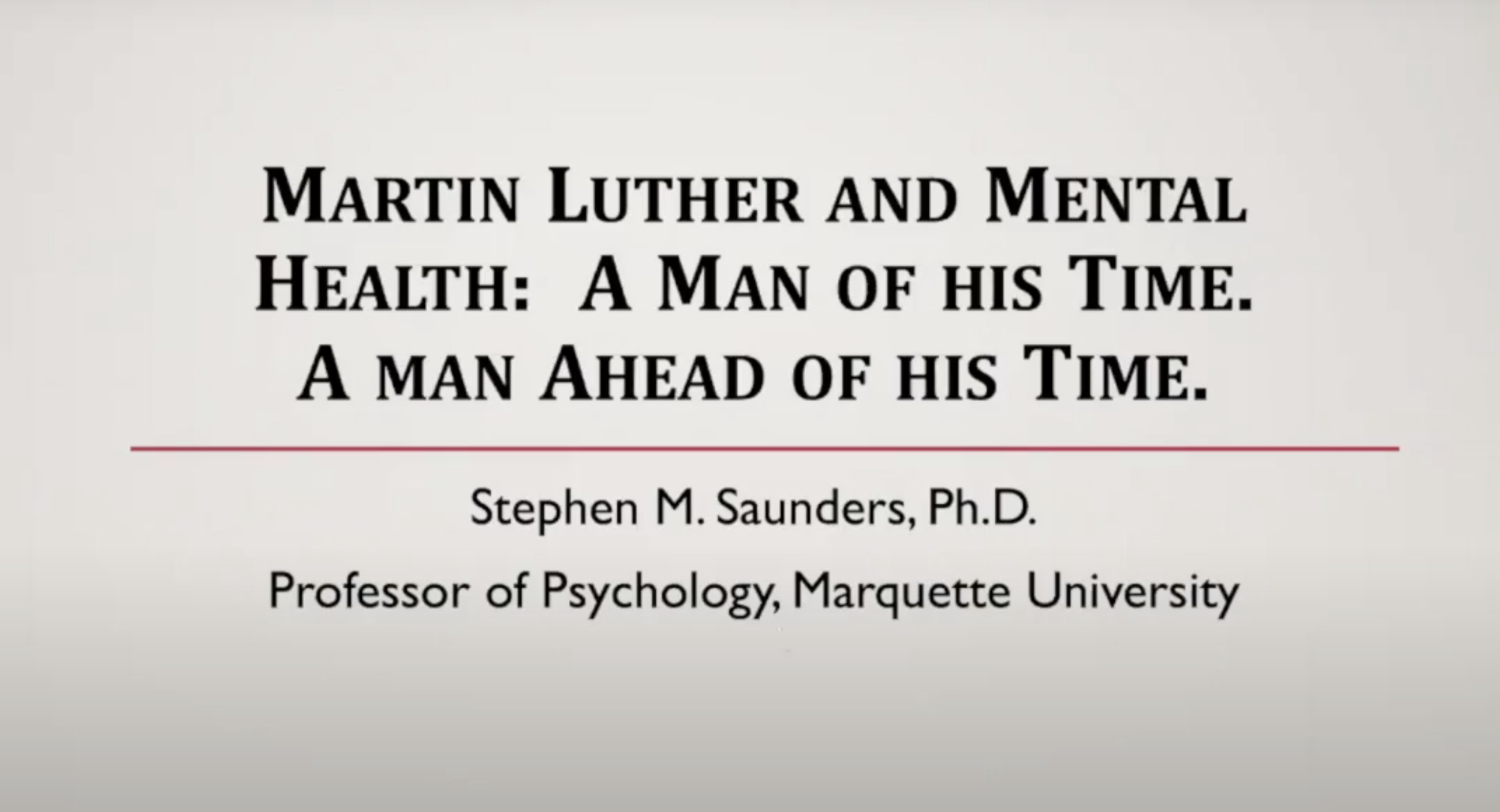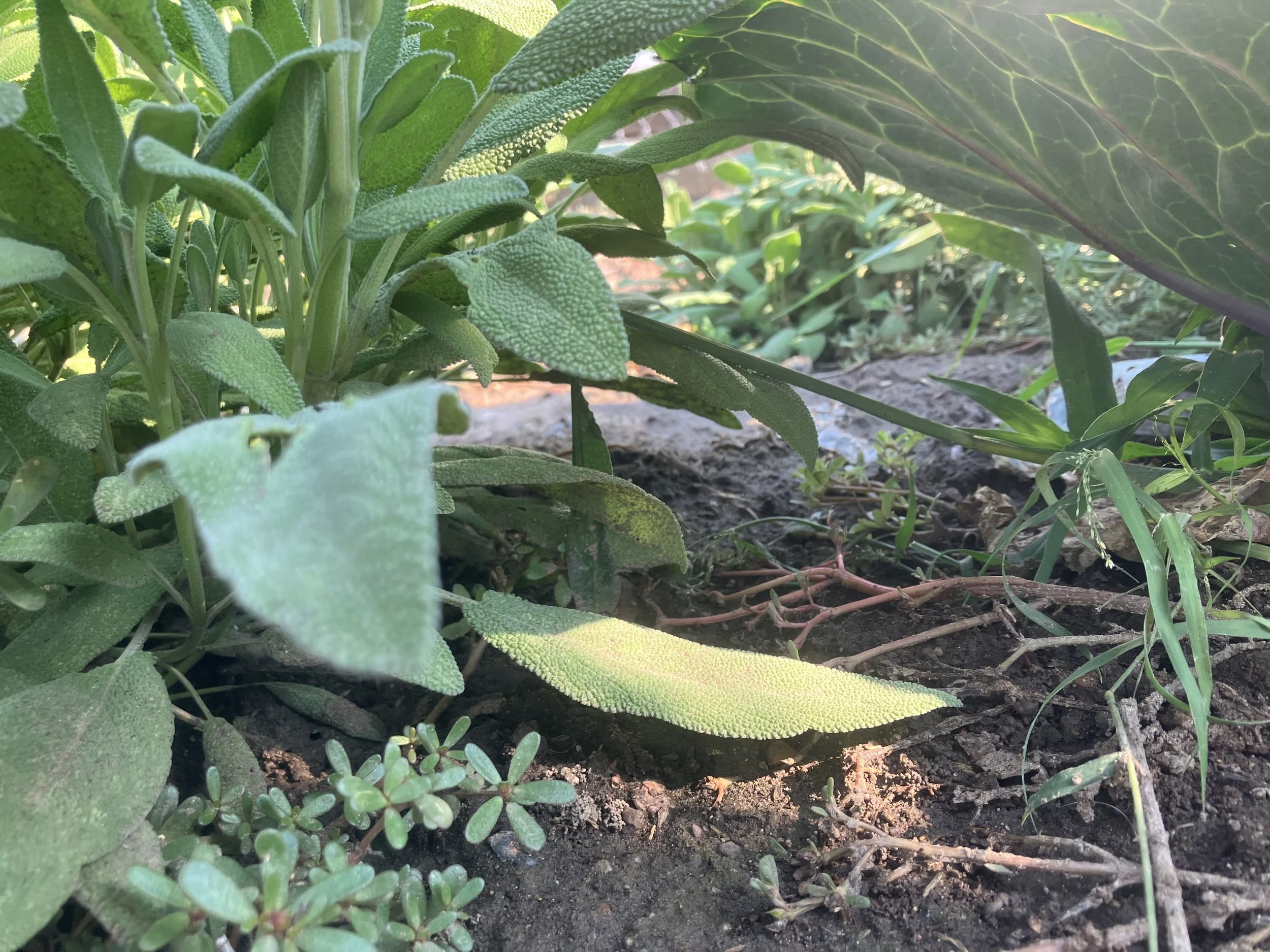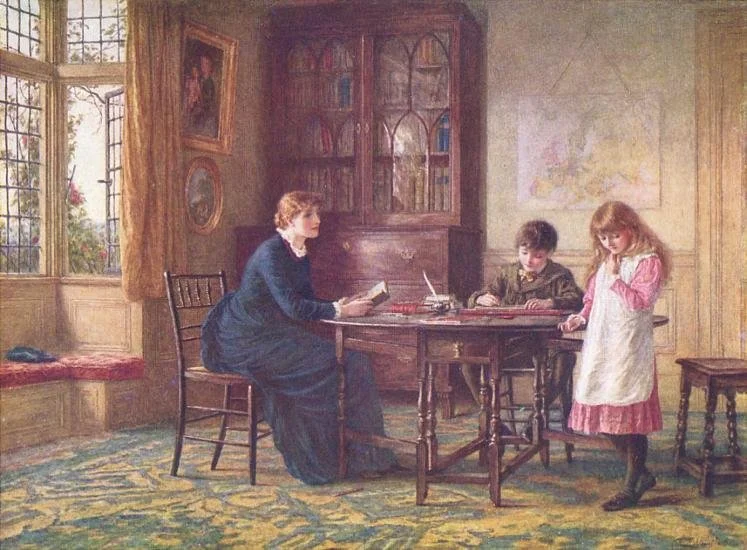Martin Luther on Mental Health: A Presentation by Stephen Saunders, Ph.D.
Stephen Saunders, professor of Psychology at Marquette University, explains how Martin Luther dealt with mental health and how that practice was directly derived from Luther's theology.

Listen to Katie’s conversation with Dr. Saunders…
Interested in learning more about Penelope’s Loom?
Begin here.
Hello dear readers! As you may have noticed, Katie and Shannon have been a little absent from this space recently. We’ve both been busy! Here is a brief update from both of us on what we’ve been doing, where we’ve been, and what we’re excited to be working on next.
There is wisdom beyond measure in a woman learning from other women what has been passed down since time immemorial.
Or jump in and start exploring.
Katie is joined in this episode by three lovely ladies who all homeschool their children following the educational philosophy depicted by Charlotte Mason and embodied by the Ambleside Online curriculum. They share a wealth of wisdom, experience, reassurance, and an introduction to what this life of learning looks like. This conversation encompasses even more than homeschooling ideas, though. They dive into what education really is and they touch on many of the foundational ideas and principles of a true life of learning. Enjoy!
Dr. Phillips graduated from Hillsdale College with a double major in Latin and Greek, and then went on to earn a PhD from the University of California Santa Barbara in Classical Studies. Currently, she teaches Latin and Greek for the House of Humane Letters. In this episode, she joins Katie to discuss the place of language in education, what Dorothy Sayers meant when she presented her famous essay “The Lost Tools of Learning” at Oxford, and the way her ideas have been misunderstood and misused in our time by neoclassical schools and institutions. Dr. Phillips explains in detail why education must always connect the universal principles to particular individuals and can never become a cookie cutter system designed to produce the same output with each child. Please listen, enjoy, and let us know your thoughts!
This will be an unpopular post. I understand that. To be clear, I don’t really dislike the fun and cute side of little ones dressing up in adorable outfits to parade around to friends’ and family’s houses. I find that to be harmless fun. But perhaps, if you’ll read this entire post, you’ll think just a little differently about the uglier parts of Halloween by the time you reach the end.
Angela Weiss, experienced Charlotte Mason homeschooling mom, pastor's wife, life long learner, and burgeoning scholar, joins us on this episode of our special series on education to talk about how wisdom, virtue, and knowledge intersect and work upon us. She and Katie specifically discuss Charlotte Mason's essay on The Great Recognition, as depicted by the 14th century fresco titled The Triumph of Saint Thomas Aquinas and the Allegory of Christian Learning. It covers the left wall of the Spanish Chapel connected to the Santa Maria Novella in Florence, Italy and was referred to as the Vaulted Book by John Ruskin. Angela and Katie discuss at great length the immense comfort that comes from remembering that the Lord is the source of all wisdom, so that our children's education depends not upon how much we ourselves know, but on the Holy Spirit guiding and working upon our children as they touch great minds through living books. We hope you'll join us for a fun and wonderfully comforting conversation about the source and nature of true education!
It is easy to expect gifts from neighbors and loved ones as if they are our due. And taking these gifts for granted makes us forget that community must grow naturally from tiny seeds first before it can bear fruit, and just like the time and immense nutrition that tomatoes require to not just grow but turn deep red, community requires a great deal of tending, too, before it bears that fruit.
On this episode of our special series on education, Emily and Katie explore more deeply true education and what Charlotte Mason did for us by working so diligently to preserve the Western tradition of thinking and learning. They discuss the difference between the "why" and the "how" of educating, the importance of synthesis over analysis, and how the child must receive and digest knowledge herself instead of being force fed pieces of information. They dive into a lot more in this episode so don't miss it!
On this episode, Katie and Emily dive into a new series on education. Katie tells the story of her journey through the various worlds of education (Hillsdale, Liberal Arts, Classical Education, etc) and finally begins a brief description of the answers she has just started to find in Charlotte Mason, David Hicks, Karen Glass, Angelina Stanford, Cindy Rollins, and others. This is just the introduction...
Here is the truth perceived by Canute and manifested by Jesus on the Sea of Galilee: there is a King and His laws still stand. There is order in this world. Tides come in and go out as usual. Storms rage and storms cease. And none of this is accidental. It’s all carried out by the decrees of the Lord.
While there are no “quick” fixes for our modern educational woes, there is a relatively easy-to-implement pedagogical method that can be used in any number of circumstances. This method is the art of narration. If you have dabbled in the world of Charlotte Mason at all (or perhaps you’ve dived in head first), narration is not a new idea. In fact, it is one of the primary tenets of the Englishwoman’s philosophy of education. Reading about it from her own works or learning about it from Karen Glass in her excellent book Know and Tell will quickly convince you that narration is some kind of magical antidote for our modern educational woes.
In this episode, Katie is joined by Pastor David Kind from University Lutheran Chapel in Minneapolis, MN. They discuss the history of the liturgy from ancient times to today. They cover topics like how certain familiar ceremonial practices developed, why different churches practice the liturgy differently (or not at all), best practices for introducing a congregation to a new (to them) liturgical practice, and - one of Katie's favorite topics - the lectionary. Pastor Kind explains why the new three year lectionary was adopted by many churches and whether that was a good thing or not for the church as a whole. Listen and enjoy!








“And I have an admiration for the people that I work with, because I know it was hard for them to get therapy, to overcome their sense of embarrassment, as if there’s something wrong with having a mental illness. And yet they come in and they gift me with their presence and they gift me with their stories and they gift me with the chance to try to help them.”